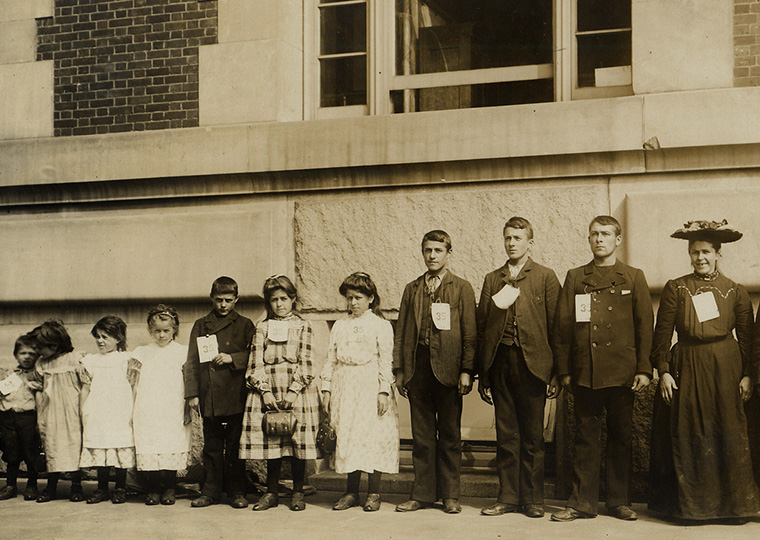When being evaluated for ‘high potential’ programs, men are rewarded for showing emotion — women are penalized
At many large companies, making one’s way to upper management requires first qualifying for the pool of employees deemed high potential, then standing out among even that elite group.
One of the key attributes corporate America looks for to winnow its high-potential pool is an employee’s passion for the work. Yet assessing passion is an inherently subjective process, which exposes it to potential misapplication.
In a paper published in Organization Science, UCLA Anderson’s Joyce C. He, Harvard’s Jon M. Jachimowicz and Imperial College London’s Celia Moore document a gender bias in how management interprets passion. Men who express passion about their job are more likely to be designated as high potential, while their female cohorts don’t get the same benefit for the same emotive display.
She Got There By Being Diligent
That there is a gendered read of the appropriateness of emotion may not be totally surprising. But in addition to delivering empirical evidence of that at play, the researchers tease out the role of perceived diligence.
A trove of past research has established that diligence is seen as central to how women manage to get ahead in the workplace while men are often perceived more as getting ahead on innate talent.
He, Jachimowicz and Moore find that when assessing high potential candidates, being passionate is construed as a signal a male worker is going to bring more diligence (commitment) to the job, while female workers get no such credit.
Women are implicitly seen as already having maxed out on diligence — the perception being it already got them to where they are in the pool of eligible candidates for high potential programs — so there isn’t much room for their passion to be interpreted as a sign they will bring more diligence to their job in the future. But men are perceived to have plenty of runway to deliver more diligence.
A Lower Bar for Men
“Seemingly innocuous and even beneficial stereotypes of women as more diligent create a shifting standard that begets a lower bar for men, in particular those we may refer to colloquially as ‘mediocre men,’” the authors conclude.
Their finding that unexceptional men get this implicit “diligence” bonus from exhibiting passion — and women don’t — aligns with a central thesis of the 2020 book, Mediocre: The Dangerous Legacy of White Male America. In the words of a New York Times reviewer, “white men’s mediocrity — entitlement tethered to unearned power and accolades.”
A key distinction is that this gender bias in reading passion and interpreting diligence does not exist at the tip-top of the potential pool. Management tends to read passion the same for male and female rock stars — those with the highest annual review ratings. It’s the pool of workers just below the rock stars — good, but not great — in which emotion holds back women and helps men.
The researchers had access to data for more than 4,000 employees of a global engineering firm that annually rates worker performance on a scale of 1-10. They focused on the top quintile who had a score of at least 7 in each of the prior two years, which was the firm’s cutoff for being eligible to be considered for “high potential” programs.
While there was no base difference in how passionate men and women were perceived to be, men were 11% more likely to be labeled as high potential. Management’s gender-biased evaluations of passion seems to help explain this gap.
Among workers with a cumulative performance review score of 14 (but not higher — thus the low end of the pool of high performers eligible for high potential review), a 1-point boost in an employee’s perceived passion rating was worth more than twice as much to males as to females in being placed into the high-potential pool.
A similar gap emerged in the researcher’s lab study that asked more than 1,300 participants with management experience to view videos of trained actors posing as employees in the running for being designated “high potential” candidates for a company.
The control group of actors discussed a work project without any expression of passion (verbal, or through body language). Actors tasked with showing passion read a script that highlighted their passion and they also used gestures and facial cues to telegraph their emotion.
Dinging Women for Passion
Here, too, men were more likely to be sorted into the “high potential group” (38% vs. 30%). And there was a gender gap in how expressions of passion were digested by the participants.
On a scale of 1 to 7, participants were asked to rate the appropriateness of passion displayed by the actors posing as workers. Men that expressed passion talking about their project elicited a slightly higher score than for the male control group (5.88 vs. 5.51). The same display of passion worked against women, as the control group’s average score of 5.44 was higher than the 5.14 rating for female employees/actors who exhibited passion for the project they were discussing.
And once again, gendered perceptions of diligence seem to be a driving force. The male employee/actor who showed passion had a higher score for diligence than the male actor who played it passionless (6.21 v. 5.98), while there was negligible difference in how passion moved the diligence meter for the female worker/actor (6.16 vs. 6.06.)
Featured Faculty
-
Joyce C. He
Assistant Professor of Management and Organizations
About the Research
He, J.C., Jachimowicz, J.M., & Moore, C. (2024). Passion Penalizes Women and Advantages (Unexceptional) Men in High-Potential Designations. Organization Science.






